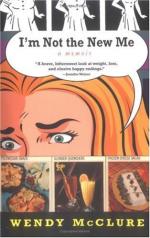was the Democratic nominee for Congress against Lincoln,
and was badly beaten. Peter Cartwright enjoyed,
perhaps, a larger personal acquaintance with the people
of Illinois than any other man ever had. His
name was familiar in every household in the West.
Up to 1856 (he wrote an autobiography in that year)
he had baptized twelve thousand persons and preached
five hundred funeral sermons. His personality
was quaint and original. A native vigor of intellect
largely overbalanced the lack of education. He
was a great wit, and often said startling things.
His religion sometimes bordered upon fanaticism.
He was fearless and aggressive, and was no respecter
of persons. It was not a rare thing for him to
descend from the pulpit, and by sheer physical force
subdue a disorderly member of his congregation.
On one occasion, attending a dinner given by Governor
Edwards, he requested the governor to “say grace,”
observing that the ceremony was about to be dispensed
with. The wife of a Methodist brother objected
to family worship; Peter Cartwright shut her outdoors
and kept her there until she became convinced of her
error. At Nashville, Tennessee, as he was about
to begin a sermon, a distinguished-looking stranger
entered the church; some one whispered to him that
it was Andrew Jackson; whereupon he at once blurted
out, “Who is General Jackson? If he don’t
get his soul converted, God will damn him as quick
as he would a Guinea nigger!” Attending the general
conference in New York, he astonished the hotel clerk
by asking for an axe “to blaze his way”
up the six flights of stairs, so that he would not
get lost on the return trip. He died in 1872,
after having been a member of the Methodist Church
for more than seventy-one years.—
J.
McCan Davis.]
LINCOLN’S POSITION IN 1845 ON THE SLAVERY QUESTION.
In this campaign of 1844 the annexation of Texas was
one of the most hotly discussed questions. The
Whigs opposed annexation, but their ground was not
radical enough to suit the growing body of Abolitionists
in the country, who nominated a third candidate, James
G. Birney. Lincoln was obliged to meet the arguments
of the Abolitionists frequently in his campaigning.
In 1845, while working for Congress, he found the
abolition sentiment stronger than ever. Prominent
among the leaders of the third party in the State
were two brothers, Williamson and Madison Durley of
Hennepin, Illinois. They were outspoken advocates
of their principles, and even operated a station of
the underground railroad. Lincoln knew the Durleys,
and, when visiting Hennepin to speak, solicited their
support. They opposed their liberty principles.
When Lincoln returned to Springfield he wrote Williamson
Durley a letter which has never before been published,[7]
and which sets forth with admirable clearness his
exact position on the slavery question at that period.
It must be regarded, we think, as the most valuable
document on the question which we have up to this
point in Lincoln’s life.




